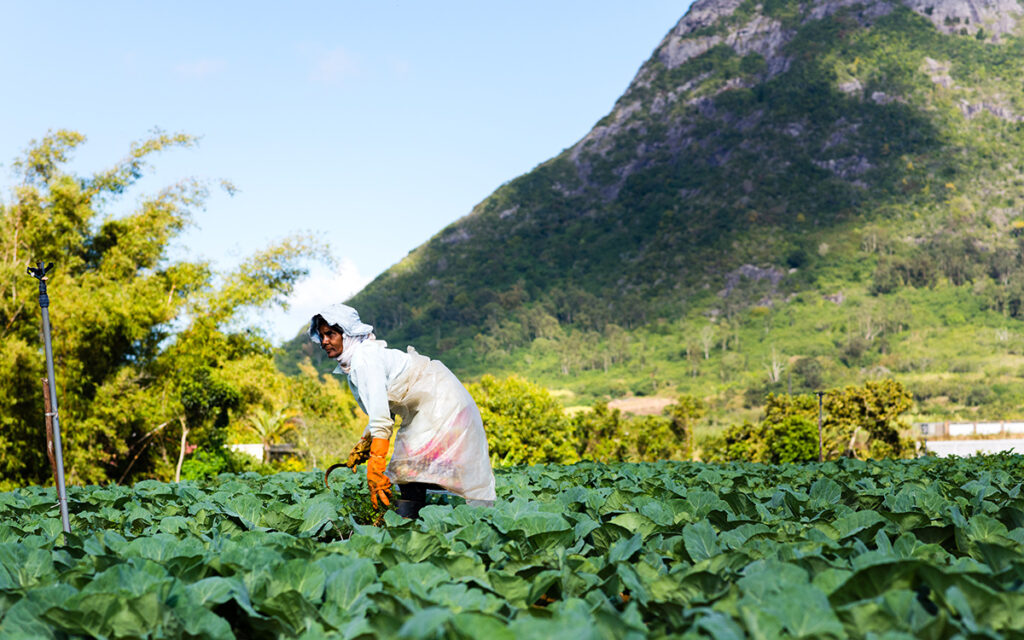
The insular and tropical context of Mauritius makes vegetable production and fight against pest and diseases of crops complex, and has led the plantersto use pesticides excessively. This situation has been aggravated/complicated by the observed and potential effects of climate change such as an acceleration in the growth and propagation of pests and disease carriers, as well as a decrease in the soil humidity. As a means of addressing those challenges, the MCA (Mauritius Chamber of Agriculture), in collaboration with the FAREI (Food and Agricultural Research Extention Institute) and with the scientific and technical support of CIRAD Reunion, has set up the Smart Agriculture project.
Through a structured and collective approach, this project proposes to accompany a network of producers, in a step wise process of re-designing their cultivations systems. This project is based on the hypothesis, shared by the scientific communities, that the transition from the current agricultural systems to agro-ecological systems, will increase the resilience of our agriculture in the face of climate change. These changes will also, in the long term, mitigate the negative impacts on the environmental. The agro-ecological transition of these systems should also help in reducing the use of pesticides on cultivations, diminishing thus the sanitary risks which is linked to pesticides spraying and to the subsequent consumption of these vegetables.

The network is the driver of innovation. The management of pests should be done at the level of the parcel of land to the level of the landscape and to that of the territory. The interactions within the network will lead to a collective and collaborative management of pests.

The approach is systemic, global and strategic.

The farmer is at the center of the whole system and is the sole decision maker as to what practices to implement based on his goals and his means. The animators question the practices and accompany the farmer throughout his reflection. The latter will then decide what to improve and which technical levers to use.

Disseminating the alternative systems tested by the farmers of the network is essential to the creation of a dynamic exchange of innovative ideas for the agricultural sector. Dissemination of the information can be done through open days, fields visits, scientific publications…

Bringing information to the farmers and to the different stakeholders is one of the elements encouraging innovation. The animators of the network will look for not only local but also international innovations as well as monitor and document the different challenges which affect the farmers.

Copyright © 2025 Mauritius Chamber of Agriculture. All Rights Reserved.